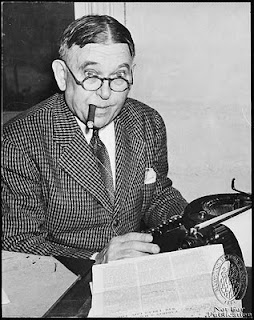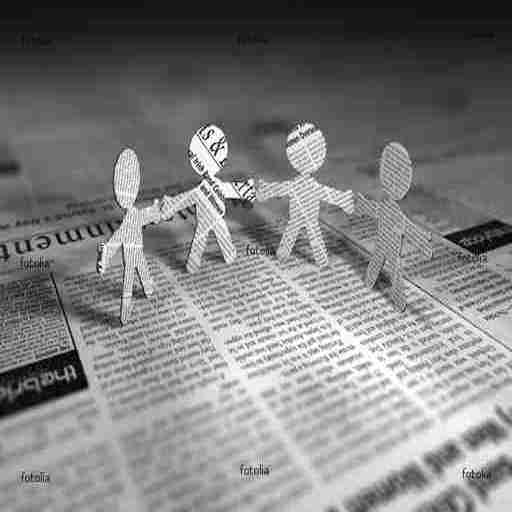The View from Afar
Writings by retired newspaper publisher Stephen Waters

The fabric of society: 9. Individual principles matter
fas09of14 Rome (NY) Sentinel 2015-10-10 October 10, 2015
The fabric of society: 9. Individual principles matter
[Article 9 of 14: The previous article examined why teaching character has been ineffective.]
A solid foundation of process concepts leads to principles of character among those capable of grasping them. Experience can reveal patterns that, if we choose to recognize and think about them, can give us insight. One needs skills to tell constructive ideas from destructive ones. The skills help produce understanding that inoculates people to defend themselves sensibly.
People often mistake practices for principles. In ancient Athens, the practice of democracy was instituted as a check on consolidated power. Their democracy trusted one person–one vote and majority rules, but still fell to tyranny of the majority and votes bought for political advantage.
The real strength of democracy is that it codifies humility as a permanent check to find a better way.
It represents a commitment to freedom of speech because the least of us, given the opportunity, may try to convince others how to improve. Democracy assures the ability to challenge veracity in front of an audience tuned to judge the accuracy of the argument. [1]
Brought to consciousness by the charge, individuals choose one side or the other. And, in the end, the penalty for poor reasoning is to have what is said dismissed.
In a democracy, capacity to make individual decisions matters. A representative democracy, when supported by an effective education system, can put forward political candidates with enough character to stand up to a misguided crowd long enough to educate them about what matters. Proper education nudges students to discover what might matter and verify it for personal use. A figurative “friend-or-foe” indicator should warn about those unwilling or unable to value society.
Like democracy, the word freedom is used to stop thinking. Often mistaken as a principle, it is not freedom that we would wish for others, but the opportunity for individuality. Freedom is the result of individuality, not individuality the result of freedom.
Athens in the time of Socrates failed because its democracy, instituted for other reasons, never saw the advantage of institutionalized doubt. Socrates’ language didn’t make a distinction between culture and society. Plato proposed rules for behavior, but no one could prove their universality. Ancient Rome schooled children with operational skills to become good citizens who spoke well, but Rome still lost its republic.
St. Augustine, after 350 AD, took a different approach suggesting virtues are written on the fleshy tablets of the heart as some kind of natural law, but such laws are culturally dependent and cannot be proven to be absolute.
Churches have difficulty getting the message across to others beyond their faith because dogma doesn’t convince; it compels.
Charlemagne in the 700s developed liberal arts. The Trivium nudged students to think using Grammar to put thoughts in order; Logic to see if those thoughts were consistent; and Rhetoric to explain those thoughts clearly to others and analyze their replies. Students then practiced thinking on subjects. The Trivium was dropped in the 1500s as it was hoped that by teaching subjects only, students would learn to think.
In the 1300s, Muslim sociologist and historian Ibn Khaldun described government as “an institution which prevents injustice other than such as it commits itself.” [2] Embracing a culture’s government without reservation is dangerous because it too easily becomes a user of people.
Europeans continued to discount the importance of individuality relative to one’s culture as Philosopher Thomas Hobbes in Leviathan (1651) believed the necessary supremacy of government because life in a state of nature was “solitary, poor, nasty, brutish, and short.” [3] Believers in the social compact (social contract) assert that those born into a culture owe their heritage to that culture for the quality of life they enjoy. In 1700s Europe, Voltaire’s enlightenment rationality proved insufficient, leading to its overthrow.
Charles Dickens mocked presumptuous “forward-thinking” educators in his 1854 book Hard Times that describes attempts to rigidly control education according to the best technical understandings of the day.
Early 20th century educator John Dewey, enamored both with popular democracy and Soviet developments in behavioral schooling, sought to meld the two to develop participatory democracy. His major works were completed before the bloom fell off the communist rose.
Teachers after World War II lost confidence in what experience had to teach. They dismissed the advantage the founders brought to the table. What should one do if one can’t be sure what to trust?
[The next article examines how individuals validate governance.]
--
[1] In medieval times, students might argue such things as how many angels could dance on the head of a pin. They didn’t care how many angels that might be. They cared to exercise skills used in discussion. The purpose was rhetorical, to exercise detection of logical fallacies. When one was detected, a student would call out, “Distinguo!” to challenge what had been said. Detecting logical fallacies, a core rhetorical skill, is only incidentally part of the ELA frameworks.
[2] Ibn Khaldun. Muqaddimah: An Introduction to History.
[3] Hobbes. Leviathan: Or the Matter, Forme & Power of a Commonwealth, Ecclesiasticall and Civill.

Stephen B. Waters
In early 2021, with 46 years in the business, I retired as publisher of the Rome (NY) Daily Sentinel
After five generations of family ownership, despite an unsettled economy, we keep on. We understand that although we may own the newspaper, we hold it in stewardship for the community.
Across my career, so many other small newspapers were purchased by media chains, large newspapers sold their integrity, and broadcast news outfits fell back on superficial entertainment.
They put journalism in this country at risk. The best antidote is for individual readers to arm themselves to recognize the danger to their community, culture, and society itself.
Index
-
 sbwTweet
sbwTweet
Mostly Links and Retweets -
 Essays
Essays
Writings across time -
 Editorials and columns
Editorials and columns
For the newspaper -
 Presentations
Presentations
Community discourse -
 Books
Books
Published and available -
 Audiobooks
Audiobooks
Readings and more